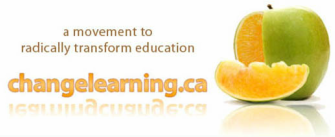Read more
|
One basic need all children have, Kohn argues, is to be loved unconditionally, to know that they will be accepted even if they screw up or fall short. Yet conventional approaches to parenting such as punishments (including “time-outs”), rewards (including positive reinforcement), and other forms of control teach children that they are loved only when they please us or impress us. Kohn cites a body of powerful, and largely unknown, research detailing the damage caused by leading children to believe they must earn our approval. That’s precisely the message children derive from common discipline techniques, even though it’s not the message most parents intend to send.
Read more
0 Comments
A child’s readiness for school depends on the most basic of all knowledge, how to learn. A [recent] report lists the seven key ingredients of this crucial capacity – all related to emotional intelligence: confidence, curiousity, intentionality, self-control, relatedness, capacity to communicate and cooperativeness. Daniel Goleman, Author of Emotional Intelligence
Education includes schooling, but it is by no means restricted to it. John Dewey
Parenting in a society without television, toy stores, gas-powered lawn mowers, and sugar-coated cereals was easier by far. Technology has removed parent's need for children's help, the traditional means by which parents transmitted across generations the importance of work, and has left parents to guide their children as best they can through a maze of continuously available entertainment. Betty Hart and Todd Risley, Authors of
Meaningful Differences in the Everyday Experiences of Young American Children A consortium of top international scientists has recently synthesized the main finding about teaching and learning….their report emphasizes the needs for school-family partnerships,. Engendering parent support for the core learning principles and parent involvement in the learning process is of the utmost importance. J.D. Bransford, A.L. Brown, and R.R. Cocking, Editors of
How People Learn: Bridging Research and Practice ….In studying resilience-related themes.. I found was that opportunities to take chances, take responsibility for others and for yourself, were things that predict positive outcomes for kids growing up under very difficult circumstances. Yet I began to see the very same things that we know help kids get through tough situations, were actually being _denied_ kids who were in very, very good living situations, in very, very safe environments at home and in the community. Michael Ungar, Author of Too Safe For Their Own Good
When they’re young, we drive them to playdates, fill up their time with organized activity, and cocoon them from every imaginable peril. We think we are doing what’s best for them. But as they grow into young adults and we continue to manage their lives, running interference with teachers and coaches, we are, in fact, unwittingly stunting them. By continuing to protect them from failure and disappointment, many of our kids are missing out on the “risk-taker’s advantage,” the benefits that come from experiencing manageable amounts of danger. Michael Ungar, Author of Too Safe For Their Own Good
It costs Canada $2.5 billion every year for remedial education because of delayed interventions or negative early experiences Child Care Education Foundation
|
Categories
All
Archives
August 2015
|

 RSS Feed
RSS Feed
